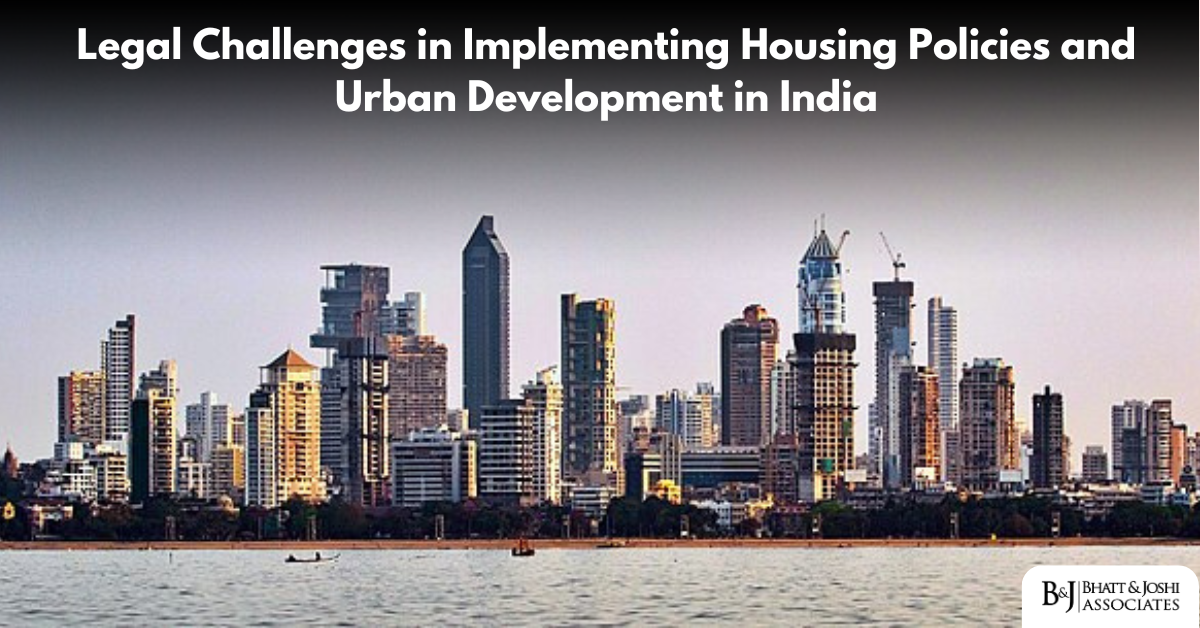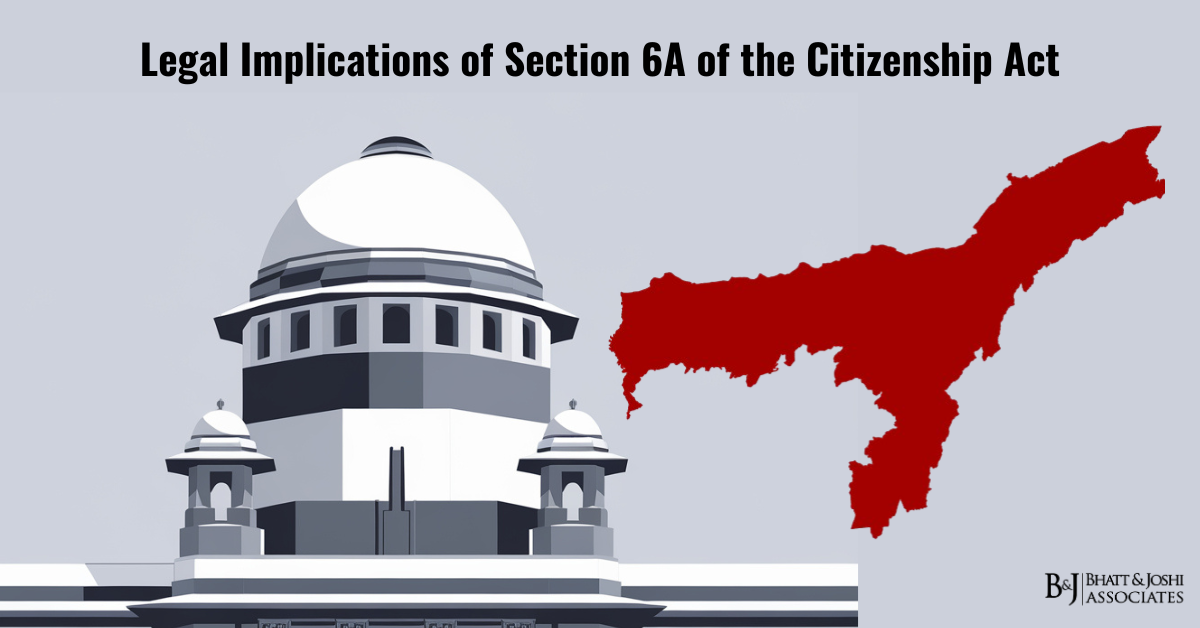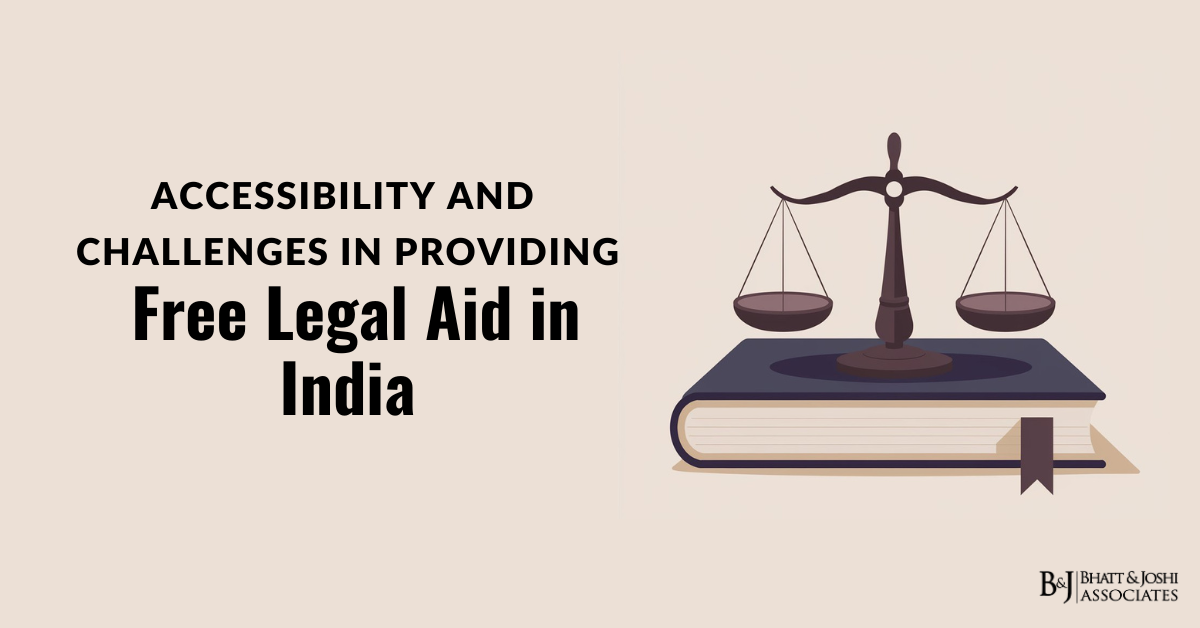Introduction
India’s urban landscape has undergone transformative changes in recent decades, driven by rapid population growth, economic expansion, and increased rural-to-urban migration. As cities grapple with the demands of burgeoning populations, housing policies and urban development initiatives have taken center stage in policy and governance. Despite the critical need for robust frameworks to manage urbanization, these efforts are riddled with legal challenges that undermine their efficacy and inclusivity. This article examines these legal challenges, the regulatory framework governing housing and urban development in India, and the judicial responses to these pressing issues.
The Scope and Necessity of Housing Policies in India
Housing is a fundamental human need and an essential component of urban development. With over one-third of India’s population residing in urban areas, the demand for affordable and adequate housing has surged. Urban housing policies aim to address this demand by promoting accessibility, affordability, and inclusivity while ensuring sustainable urban planning. However, India’s housing deficit—both qualitative and quantitative—remains a significant concern. According to the Ministry of Housing and Urban Affairs (MoHUA), the urban housing shortage stood at approximately 11.2 million units in 2021, predominantly affecting low-income groups.
Urban development encompasses more than the construction of housing units. It includes ensuring infrastructure, sanitation, transportation, and basic amenities for urban residents. This comprehensive nature of urbanization has created a need for policies that integrate housing with larger urban development goals, addressing the socioeconomic disparities that exist in cities. The importance of these policies becomes even more critical in light of the rapid migration to urban areas, which is expected to intensify further, contributing to the rise of informal settlements and slums.
Legal and Regulatory Framework for Housing and Urban Development
Housing policies and urban development in India are governed by a complex legal framework that encompasses constitutional provisions, central and state laws, and municipal regulations. At the constitutional level, urban development and housing are primarily state subjects under the Seventh Schedule. However, the Directive Principles of State Policy, particularly Articles 39(b) and 39(c), emphasize equitable distribution of resources and the prevention of concentration of wealth, laying the groundwork for housing-related policies.
One of the most significant legislations in the real estate sector is the Real Estate (Regulation and Development) Act, 2016 (RERA). This act aims to bring transparency and accountability to the real estate sector, protecting homebuyers from fraud and delays while creating a more efficient market. Complementing this is the Land Acquisition, Rehabilitation and Resettlement Act, 2013 (LARR), which seeks to address the contentious issue of land acquisition by mandating fair compensation and rehabilitation for affected parties.
State-specific Development Control Regulations (DCR) further influence urban development by governing land use, zoning, and building norms. These regulations ensure orderly urban growth, though their implementation is often uneven and inconsistent. Other initiatives, such as the Smart Cities Mission and the Atal Mission for Rejuvenation and Urban Transformation (AMRUT), are critical in driving modernization and sustainable development. However, these schemes often face legal and administrative challenges that hinder their success.
Legal Challenges in Housing Policies
Land acquisition remains one of the most contentious issues in housing and urban development. The process is often fraught with disputes over compensation, rehabilitation, and the environmental impact of development projects. While the LARR Act, 2013, introduced provisions for fair compensation, its implementation has faced delays and resistance from landowners and local communities. Cases such as Narmada Bachao Andolan v. Union of India illustrate the challenges in balancing development needs with the rights of displaced persons. Despite legislative attempts to streamline the process, conflicts over land acquisition remain a significant legal hurdle.
Another critical challenge is the proliferation of urban slums and informal settlements. With urban housing often unaffordable for lower-income groups, slums have become an unfortunate but integral part of Indian cities. Legalizing and upgrading these settlements pose both regulatory and ethical dilemmas. The landmark case of Olga Tellis v. Bombay Municipal Corporation underscored the right to livelihood and shelter for slum dwellers, setting a precedent for subsequent policies on slum rehabilitation. However, the implementation of such policies often falls short due to bureaucratic inefficiencies and lack of political will.
Zoning and land use regulations, designed to ensure planned urban growth, frequently clash with the realities of urbanization. Outdated zoning laws often fail to accommodate the needs of growing populations, leading to unauthorized constructions and urban sprawl. Judicial interventions, such as the Supreme Court’s ruling in MC Mehta v. Union of India (Delhi sealing drive), highlight the tension between enforcing regulations and addressing the housing needs of urban residents. Such conflicts expose the gaps in India’s urban planning and regulatory frameworks.
The shortage of affordable housing is another pressing issue. Despite numerous government initiatives, the availability of affordable housing remains inadequate due to legal and procedural bottlenecks. Public-private partnerships (PPPs), which are seen as a solution to this problem, often encounter legal disputes over contract terms, land allocation, and compliance with regulatory norms. Cases such as DLF Universal Ltd. v. Director, Town and Country Planning illustrate the complexities involved in such collaborations.
Environmental concerns also pose significant challenges to urban development. Large-scale housing projects and urban expansion often lead to deforestation, water resource depletion, and pollution. The Environmental Impact Assessment (EIA) Notification, 2006, mandates assessments for such projects, but compliance is often lacking. Judicial interventions, such as in Vellore Citizens Welfare Forum v. Union of India, emphasize the importance of sustainable development, but enforcement remains a challenge.
Case Laws Shaping Urban Housing Policies
Indian judiciary has played a pivotal role in shaping housing policies and urban development by balancing constitutional rights with development imperatives. One of the most influential cases in this context is Olga Tellis v. Bombay Municipal Corporation (1985), where the Supreme Court recognized the right to livelihood under Article 21 and linked it to the right to shelter. This judgment influenced slum rehabilitation policies, emphasizing the need to consider the rights of marginalized urban populations.
The Delhi sealing drive, arising from MC Mehta v. Union of India, underscores the judicial commitment to enforcing zoning laws and curbing unauthorized constructions. However, it also highlights the limitations of urban planning policies in addressing housing shortages. In another landmark case, K.K. Manchanda v. Union of India, the Court addressed issues related to equitable land acquisition for housing projects, reinforcing the principles of fairness and accountability.
The judiciary has also been instrumental in promoting transparency in real estate transactions. The case of R.D. Saxena v. Balram Prasad Sharma addressed the lack of fairness in real estate practices, paving the way for the enactment of RERA. Similarly, the ruling in Forum for People’s Collective Efforts v. State of West Bengal (2021) emphasized the need for a uniform regulatory framework, invalidating the West Bengal Housing Industry Regulation Act, 2017, which deviated from RERA’s provisions.
Broader Challenges in Urban Development
Infrastructure deficits pose a significant challenge to urban development in India. Rapid urbanization has outpaced the capacity of cities to provide essential services such as water, electricity, sanitation, and transportation. Initiatives like the Smart Cities Mission aim to address these deficits, but their implementation is often delayed by legal disputes and administrative inefficiencies. For example, conflicts over land acquisition and environmental clearances have stalled several Smart Cities projects.
Fragmented governance is another major issue. Urban governance in India is divided among multiple agencies with overlapping jurisdictions, leading to conflicts and inefficiencies. For instance, in Delhi, the Delhi Development Authority (DDA) and the Municipal Corporation of Delhi (MCD) frequently clash over jurisdictional issues, resulting in delays in implementing housing and urban development projects. Such fragmentation hampers coordinated efforts and undermines the effectiveness of urban policies.
Regulatory non-compliance is rampant in urban development. Many housing projects fail to adhere to statutory requirements, leading to legal disputes and project delays. Unauthorized constructions, violations of building codes, and lack of environmental clearances are common issues. Judicial interventions, such as the ruling in Friends Colony Development Committee v. State of Orissa, highlight the need for stricter enforcement of regulations and greater accountability.
Public participation in urban development policies is often minimal, undermining inclusivity and accountability. The lack of mechanisms to involve marginalized communities in decision-making processes leads to policies that fail to address their needs effectively. This is particularly evident in the implementation of the LARR Act, 2013, where affected communities often feel excluded from discussions on land acquisition and rehabilitation.
Judicial Responses and Policy Reforms
The judiciary has consistently emphasized the need for inclusive and sustainable urban development. Courts have played a crucial role in addressing regulatory gaps, protecting the rights of vulnerable populations, and promoting environmental sustainability. Judicial scrutiny of housing and urban development policies has led to significant reforms, such as the strengthening of RERA’s provisions and the promotion of fair compensation mechanisms under the LARR Act.
In cases like Narmada Bachao Andolan v. Union of India and Olga Tellis, the judiciary has balanced development imperatives with fundamental rights, ensuring that marginalized communities are not left behind. Similarly, landmark environmental cases like Vellore Citizens Welfare Forum and T.N. Godavarman Thirumalpad v. Union of India have set precedents for integrating environmental considerations into urban planning.
The Way Forward for India’s Housing Policies and Urban Development
Addressing the legal challenges in housing policies and urban development requires a multi-pronged approach. Comprehensive legal reforms are essential to harmonize central and state laws, update zoning regulations, and ensure robust enforcement mechanisms. Strengthening public-private partnerships through transparent and equitable frameworks can boost affordable housing and infrastructure development. Decentralizing governance and empowering urban local bodies (ULBs) can improve policy implementation and accountability, making urban development more responsive to local needs.
Inclusive urban planning is critical to addressing the socioeconomic disparities that characterize Indian cities. Policies must prioritize the participation of marginalized communities, ensuring that their voices are heard and their rights protected. Aligning urban development initiatives with the principles of equity, sustainability, and justice can pave the way for resilient and equitable urban growth.
Conclusion
Housing policies and urban development in India face intricate legal challenges rooted in land disputes, regulatory inefficiencies, and socio-economic inequalities. While judicial interventions and legislative reforms have provided some relief, a holistic and inclusive approach is essential for sustainable urban growth. By addressing these legal impediments and fostering cooperation among stakeholders, India can pave the way for resilient and equitable urban development, ensuring that its cities are not only engines of economic growth but also havens of social equity and environmental sustainability.













